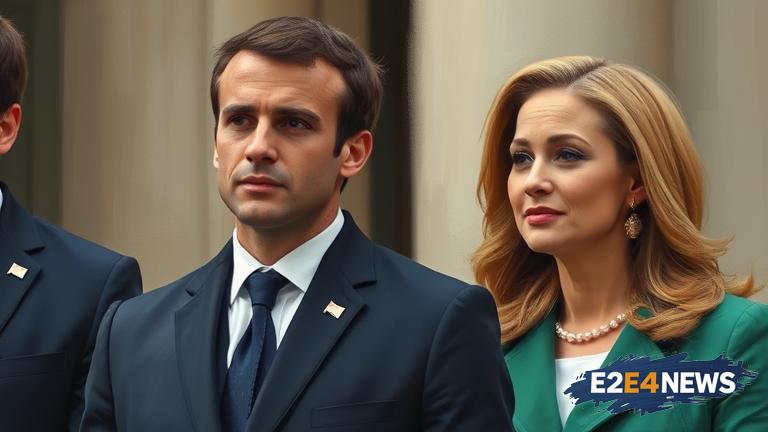A recent court ruling in France has sparked controversy and debate after two individuals claimed that Brigitte Macron, the wife of French President Emmanuel Macron, was actually a man. The allegations, which were made on social media, were met with widespread criticism and outrage, with many accusing the individuals of spreading false and defamatory information. However, in a surprising turn of events, a French court has dismissed the defamation claims against the two individuals, citing freedom of speech and the right to express opinions. The court’s decision has been met with mixed reactions, with some hailing it as a victory for free speech and others condemning it as a dangerous precedent. The allegations against Brigitte Macron were first made on social media, where the two individuals claimed that she was actually a man who had undergone gender reassignment surgery. The claims were quickly debunked by fact-checkers and experts, who pointed out that there was no credible evidence to support the allegations. Despite this, the claims continued to circulate on social media, with many people sharing and believing them. The Macron family has been the subject of intense media scrutiny and public interest, with many people fascinated by their personal lives and relationships. Brigitte Macron, in particular, has been the subject of much attention and speculation, with many people admiring her style and elegance. However, the allegations against her have also sparked a wider debate about the nature of truth and misinformation in the digital age. With the rise of social media, it has become increasingly easy for false and defamatory information to spread quickly and widely, often with serious consequences. The French court’s decision has highlighted the need for a nuanced and balanced approach to regulating speech and expression, one that takes into account both the right to free speech and the need to protect individuals from harm and defamation. The case has also sparked a wider conversation about the role of social media in shaping public discourse and the importance of critical thinking and media literacy in the digital age. As the debate continues to unfold, it remains to be seen how the French court’s decision will be received and what implications it will have for future cases involving defamation and free speech. The Macron family has yet to comment on the court’s decision, but it is likely that they will continue to be the subject of intense media scrutiny and public interest in the coming days and weeks. The case has also raised questions about the nature of identity and gender, and how these concepts are perceived and understood in different cultures and societies. Ultimately, the French court’s decision is a reminder that the truth is often complex and multifaceted, and that it is up to each individual to critically evaluate the information they consume and to seek out credible and reliable sources. The case is a significant one, and its implications will be felt for a long time to come.
